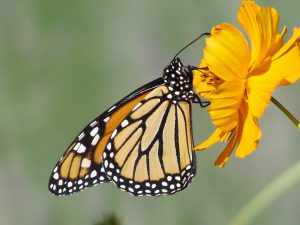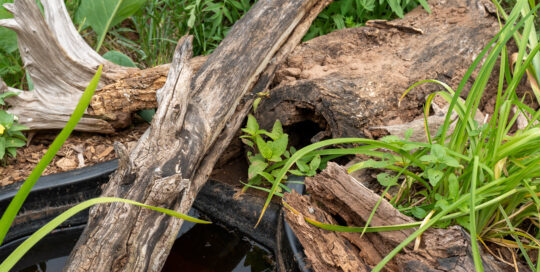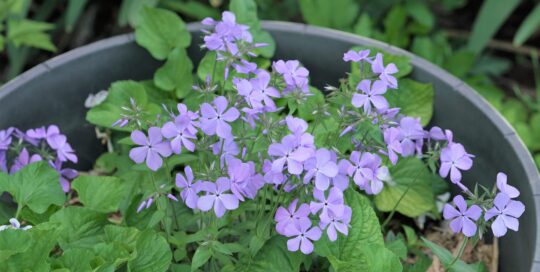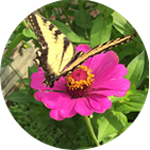My Monarch-Friendly Shopping List for Spring
Views: 2001

On March 5th, 2018, the Mexican government released their annual report on wintering monarch butterflies. Every year, thousands of monarchs migrate to a small area of protected fir forests near Mexico City. While some years are better than others, the overall trend since the late 1990s has been downward in butterfly numbers. Unfortunately, however, this year’s report was not good news. Last year, the monarchs clumped in trees covering 7.19 acres. Then, this year they only covered 6.12, a significant loss in individual butterflies.
There are multiple reasons monarchs are declining, such as deforestation in their wintering grounds in Mexico. But loss of habitat and milkweed, their host plants, play an important role as well. That’s where we, as gardeners, can help.
Monarch Watch
Thankfully, there are many different organizations focused on helping monarchs. For example, one such organization is MonarchWatch.org. Monarch Watch is a nonprofit organization affiliated with the University of Kansas. Focused on education, conservation, and research, its mission statement is: “Monarch Watch strives to provide the public with information about the biology of monarch butterflies, their spectacular migration, and how to use monarchs to further science education in primary and secondary schools. We engage in research on monarch migration biology and monarch population dynamics to better understand how to conserve the monarch migration. We also promote protection of monarch habitats throughout North America.”
Monarch Watch provides free milkweed plants to schools and non-profit educational organizations. They also offer them for large-scale restoration projects.
For the private market, they have a “milkweed market,” and if you enter your zip code, and they’ll offer milkweed that is native to your area. They sell by the flat (50 plugs), so this isn’t a venue to purchase single plants. If you don’t want 50 plants, it might be an opportunity to share with other gardeners or split the cost.
My favorite element of Monarch Watch is their Monarch Waystation Program. This program encourages people to plant monarch-friendly plants in “certified waystations.” To get certification, you have to have a certain density of specific plants in a given area. These certified areas are monarch-friendly spaces, providing nectar, shelter, and host plants. The cost to register a waystation is $16. After registering, you can order a weatherproof Monarch Watch Waystation sign and then submit a photo for their online registry.
The online registration form is instructive, even if you do not wish to spend the money to register a waystation. It provides you with a potential shopping list for a monarch-friendly garden:
Host Plants
- Balloonplant (Asclepias physocarpa)
- Blue Vine Milkweed (Cynanchum laeve)
- Butterfly Milkweed (Asclepias tuberosa)
- Common Milkweed (Asclepias syriaca)
- Desert Milkweed (Asclepias erosa)
- Green Antelopehorn (Asclepias viridis)
- Heartleaf Milkweed (Asclepias cordifolia)
- Indian Milkweed (Asclepias eriocarpa)
- Narrowleaf Milkweed (Asclepias fascicularis)
- Purple Milkweed (Asclepias purpurascens)
- Showy Milkweed (Asclepias speciosa)
- Sullivant’s Milkweed (Asclepias sullivantii)
- Swamp Milkweed (Asclepias incarnata)
- Tropical Milkweed (Asclepias curassavica)
- Whorled Milkweed (Asclepias verticillata)
Nectar Plants – Annuals or Biennials
- Blanket Flower (Gaillardia spp.)
- Cleome (Cleome spp.)
- Cosmos (Cosmos spp.)
- Floss Flower (Ageratum spp.)
- French Marigold (Tagetes patula)
- Lantana (Lantana spp.)
- Mexican Sunflower (Tithonia rotundifolia)
- Pentas (Pentas spp.)
- Porterweed (Stachytarpheta spp.)
- Salvia (Salvia spp.)
- Thistle (Centaurea and Cirsium sp.)
- Verbena/Vervain (Verbena spp.)
- Zinnia (Zinnia spp.)
- Other Annuals or Biennials
Nectar Plants – Perennials
- Bee Balm (Monarda spp.)
- Black-Eyed Susan (Rudbeckia hirta)
- Blazingstar/Gayfeather (Liatris spp.)
- Boneset (Eupatorium perfoliatum)
- Butterfly Bush (Buddleia spp.)
- Caryopteris (Caryopteris spp.)
- Catmint/Catnip (Nepeta spp.)
- Coreopsis (Coreopsis spp.)
- Goldenrod (Solidago spp.)
- Hollyhock (Alcea spp.)
- Ironweed (Vernonia spp.)
- Joe-Pye Weed (Eupatorium purpureum)
- Mallow (Malva spp.)
- New England Aster (Aster novae-angliae)
- Phlox (Phlox spp.)
- Purple Coneflower (Echinacea purpurea)
- Sedum (Sedum spectabile)
- Senna/Cassia (Senna spp.)
- Violet (Viola spp.)
- Vitex (Vitex spp.)
- Other Perennials
The application also asks if you perform certain sustainable management practices:
- Add other features (e.g.- fruit feeders, bee nesting boxes, other host plants, etc.)
- Amend the soil (add nutrients or other materials) to achieve proper conditions before planting
- Eliminate the use of insecticides
- Manage the density of the plot by thinning (removing plants to minimize crowding)
- Mulch around the base of plants to reduce the growth of weeds and retain water
- Remove dead stalks, etc. before the next growing season by mowing, burning, or by hand
- Remove invasive species from the site
- Use natural compost for fertilization
- Water the plot as needed to maintain growth
Through their monarch waystation application, Monarch Watch has provided me with my spring butterfly garden shopping list. I’ll be getting the certification as soon as I have enough things planted.
Meet Leslie Miller
Leslie Ann Miller shares 3.5 acres in rural Oklahoma with birds, butterflies and wide variety of animals. She is currently transforming her yard with plantings…
Leslie's Recent Posts

Creating microclimates and microhabitats to benefit wildlife






